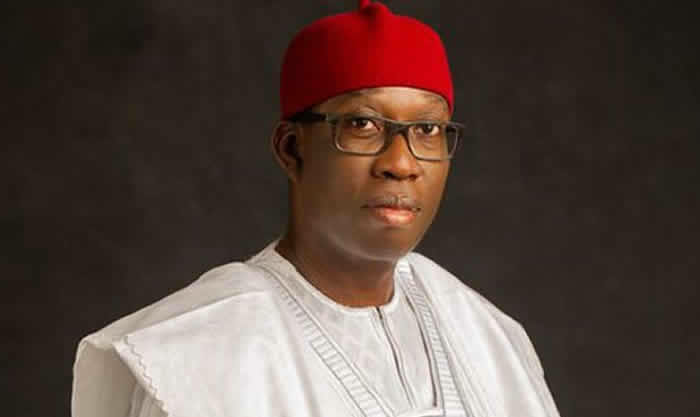Delta State Governor, Ifeanyi Okowa has called on traditional rulers to see their positions as a platform for promoting peace and conflict resolution.
Okowa made the call on Friday at the Delta State Traditional Rulers, Stakeholders and Institutions Conference, in Asaba.
The conference had the theme: “Building Prosperous and Peaceful Kingdoms in Delta State’’.
Represented by the Chief of Staff of Delta Government House, Mr Festus Agas, Okowa stated that the conference was apt, considering the rising social ills of kidnapping, armed robbery and extortion bedevilling communities.
According to him, under democratic governance, traditional rulers had continued to play the pivotal role of serving as a bridge between the government and the people.
“The role of traditional rulers as the leaders at the grassroots dates back to pre- colonial era where, in some cases, they were held as the medium through which subjects can reach God.
“During the post colonial era into the period of military regimes and under democratic governance, traditional rulers have continued to play the pivotal role between the government and the people,’’ he said.
Okowa commended traditional rulers in the state for their cooperation, understanding and prayers, urging them to avoid any actions that could provide cover for criminals.
He enjoined the state residencts to cultivate mutual love, understanding, empathy and dialogue.
“Development and prosperity do not occur in a vacuum, they thrives best in climes where there is peace, stability and readiness of people to be accommodating of each other’s flaws.
“My administration will continue to empower local structures to be able to prevent and mitigate conflict and mediate in conflict situations.
“States experiencing inter-communal conflicts are better positioned to achieve peace by recognising the role traditional actors can play in mobilising their subjects toward peace,” he said.
Mr Andy Osawota, Special Adviser to Okowa on Chieftaincy Matters, said that the governor recognised that traditional rulers were critical components of governance even when carefully hidden under traditions, customs and culture.
